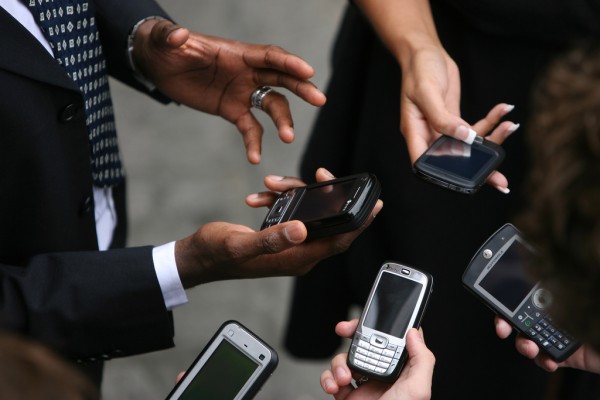Hooked on our smartphones: We’re spending too much time doing things that don’t really matter to us
03/15/2017 / By Isabelle Z.

No matter where you go, there is a good chance you will encounter a “smartphone zombie”. It doesn’t matter if you’re walking down the street, buying groceries or even having dinner with your family; there always seems to be someone around you who is glued to their smartphone screen and is completely oblivious to everything else that is going on.
This type of behavior is worse than just an annoying habit or bad manners; it is downright harmful. The prevalence of digital technology is changing our society, and not necessarily for the better. While it does bring about a lot of benefits, such as access to information and connectivity with loved ones, it is also impacting our mental and physical health in negative ways. It puts us at risk of cell phone radiation exposure, weight gain, eye damage and the destruction of our relationships with other people
Are you married to your smartphone?
Smartphone overuse is hurting relationships and families by focusing people’s attention on the people who are not present instead of the ones who are. Spending time building real-world connections is incredibly valuable for one’s well-being, and that simply can’t be done when you’re holding a screen to your face around the clock.
New York psychotherapist Nancy Colier is seeing a lot of people in her practice who have essentially become disconnected from the things that truly matter and ground us as humans, and this is at the root of a lot of people’s stress, anxiety and depression.
We don’t need to find out about every clothing sale the moment it starts. We don’t need to know what our co-worker ate for breakfast. We don’t need to read every tweet from some actor we’ve never met the minute it goes up. What we need is balance and tranquility and bonding with loved ones.
A lot of people say that smartphones free us. They might let us check work emails without going into the office, but we are also slaves to them. When we hear that chime indicating that we’ve just received a message, the urge to check it and respond right away can be hard to suppress.
Everyone needs downtime and open spaces
Just how often do we check our smartphones? Colier says that most people check their phones every six minutes, or 150 times per day. Imagine if you responded to a message each time you check your device; you’d be wasting 150 minutes a day that could have been devoted to a more rewarding pursuit. Meanwhile, young adults send 110 texts per day on average. Colier says this frequent checking-in leaves us constantly on edge.
“Without open spaces and downtime, the nervous system never shuts down — it’s in constant fight-or-flight mode. We’re wired and tired all the time. Even computers reboot, but we’re not doing it.”
Missing the world
When you’re looking at your screen, you are not noticing the things around you: the trees swaying in the wind, the birds flying overhead, the beauty of the clouds passing the mountain on the horizon. Some parents even stick a tablet in their toddler’s stroller when they go out for a walk, robbing them of the valuable chance to observe the workings of nature and the world around them.
Using a digital device is sedentary, and it’s often done indoors. It keeps children and adults alike from taking walks, getting fresh air, playing outside, participating in sports, reading and doing creative activities. Natural environments restore our mind and spirit, reduce stress and boost our creativity and focus, and we are largely missing out on that by playing smartphone games and responding to text messages every six minutes.
Try a digital detox
There are a few ways you can try to curtail your dependence on digital devices and shift your focus to what truly matters. First of all, determine just how much of your digital use is absolutely indispensable. Sending your spouse a message to let them know you’ll be late from work is reasonable, but checking social media should be confined to a small, one-time part of your day, not a constant back-and-forth every single time there is an update.
Start small by turning your device off at certain times, such as when you’re eating or out for a walk. Slowly incorporate more of these phone-free moments into your daily routine, and you’ll soon find yourself feeling a lot more relaxed.
Sources include:
Tagged Under: digital detox, smartphone addiction, Smartphones


















